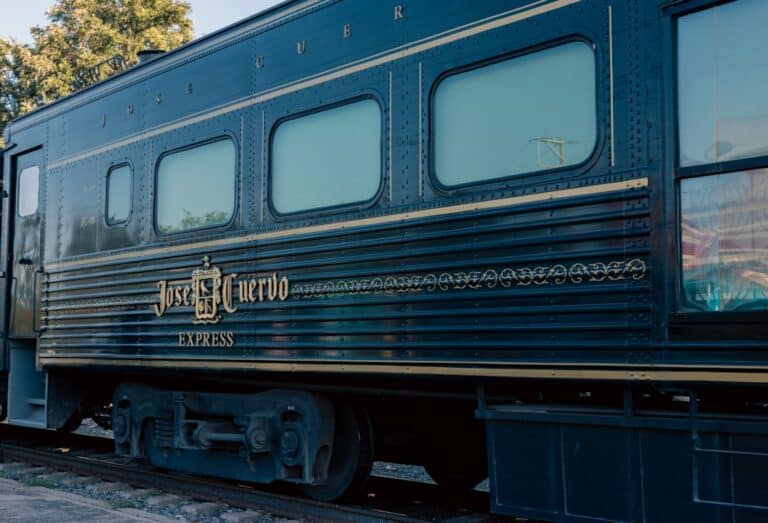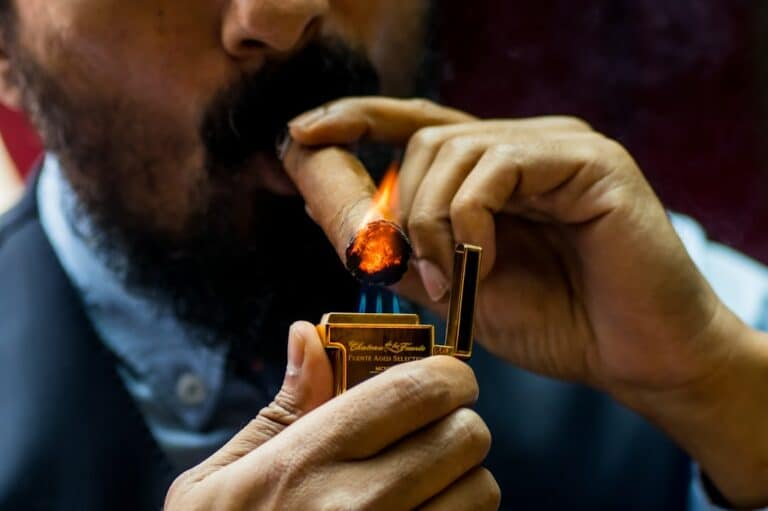Cuban Cigar History
The story of Cuban cigars is steeped in rich history and cultural significance, tracing back to the indigenous Taíno people who inhabited the island long before European colonization. They were the first to cultivate tobacco, using it for ceremonial purposes and as a form of medicine. When Christopher Columbus arrived in 1492, he encountered this fascinating plant and brought it back to Europe, where it quickly gained popularity among the aristocracy.
The cultivation of tobacco in Cuba began to flourish, thanks to the island’s ideal climate and fertile soil, which provided the perfect conditions for growing high-quality tobacco. As the demand for tobacco grew, so did the methods of production. By the 18th century, Cuba had established itself as a leading producer of cigars, with cities like Havana becoming synonymous with premium tobacco products.
The craftsmanship involved in rolling cigars became an art form, with skilled artisans known as “torcedores” meticulously hand-rolling each cigar. This dedication to quality and tradition laid the foundation for what would become one of the most revered cigar industries in the world. The unique combination of climate, soil, and expertise has made Cuban cigars a symbol of luxury and indulgence, attracting enthusiasts from all corners of the globe.
Key Takeaways
- Cuban cigars have a long history dating back to the 15th century when Christopher Columbus first encountered tobacco in the New World.
- The Cuban cigar industry is known for its strict regulations and high-quality production, with many of the world’s most famous cigar brands originating from Cuba.
- The Golden Age of Cuban cigars occurred in the 19th and 20th centuries, when they were considered the finest cigars in the world and were highly sought after by cigar enthusiasts.
- The Cuban cigar embargo was imposed by the United States in 1962, prohibiting the import of Cuban goods, including cigars, due to political tensions between the two countries.
- The embargo had a significant impact on the Cuban cigar industry, leading to a decline in sales and the rise of counterfeit Cuban cigars in the market.
- The future of Cuban cigars remains uncertain, as the embargo continues to restrict their availability in the United States and the global market.
- Cuban cigars are illegal in the United States due to the ongoing embargo and political tensions between the US and Cuba, making it illegal to import or purchase Cuban cigars within the country.
The Cuban Cigar Industry
Quality Control and Centralized Production
This centralized control allows for strict quality standards, ensuring that every cigar bearing the “Cuban” label meets the high expectations of consumers. The cultivation process begins with selecting the right seeds and nurturing them in specialized nurseries. Once the plants mature, they are harvested and undergo a meticulous fermentation process that enhances their flavor profile.
The Art of Cigar Making
After fermentation, the leaves are aged to develop their character further. The final step involves skilled artisans rolling the cigars by hand, a process that requires years of training and experience. This dedication to craftsmanship is what sets Cuban cigars apart from their competitors, making them highly sought after by aficionados who appreciate the artistry involved in their creation.
The Significance of Cuban Cigars
The Cuban cigar industry’s unique blend of traditional practices and state-of-the-art techniques has cemented its position as a leader in the global market. With a focus on quality, craftsmanship, and attention to detail, Cuban cigars continue to be a staple of luxury and sophistication.
Global Demand and Appreciation
As a result, Cuban cigars have gained a loyal following worldwide, with many enthusiasts seeking out these premium products for their exceptional flavor and aroma. The industry’s commitment to excellence has paid off, with Cuban cigars remaining a highly prized and sought-after commodity among connoisseurs and collectors alike.
The Golden Age of Cuban Cigars

The mid-20th century marked a golden age for Cuban cigars, characterized by an explosion of popularity and prestige. During this time, Cuba was home to some of the most renowned cigar brands in the world, including Cohiba, Montecristo, and Romeo y Julieta. These brands became synonymous with luxury and sophistication, often associated with celebrities and political figures who enjoyed their indulgent qualities.
The allure of Cuban cigars was not just about their taste; it was also about the lifestyle they represented. As demand surged, so did innovation within the industry. Cigar manufacturers began experimenting with different blends and aging techniques, resulting in a diverse range of flavors and strengths.
This period also saw the establishment of cigar lounges and clubs where enthusiasts could gather to enjoy their favorite smokes in a social setting. The combination of high-quality products and a vibrant culture surrounding cigars solidified Cuba’s reputation as the premier destination for cigar lovers worldwide.
The Cuban Cigar Embargo
In 1960, the political landscape shifted dramatically when Fidel Castro’s government nationalized all private businesses, including those in the cigar industry. This move was part of a broader strategy to consolidate power and control over Cuba’s economy. In response to these changes and growing tensions between Cuba and the United States, President John F.
Kennedy imposed an embargo on Cuban goods, including cigars. This embargo would have far-reaching implications for both countries and the global cigar market. The embargo effectively cut off access to Cuban cigars for American consumers, leading to a surge in demand for alternatives from other countries.
While this created opportunities for non-Cuban brands to thrive, it also left many cigar enthusiasts yearning for the authentic experience that only Cuban cigars could provide. The embargo not only impacted sales but also altered perceptions of Cuban cigars, turning them into symbols of exclusivity and desire for those unable to obtain them legally.
The Impact of the Cuban Cigar Embargo
The impact of the Cuban cigar embargo has been profound and multifaceted. For American consumers, it created a sense of longing for a product that was once readily available but became shrouded in mystery and allure due to its illegality. This scarcity only heightened the desirability of Cuban cigars, leading to a thriving black market where counterfeit products proliferated.
For many cigar enthusiasts, obtaining a genuine Cuban cigar became a badge of honor, representing not just a taste preference but also a connection to a rich cultural heritage. On a broader scale, the embargo significantly affected Cuba’s economy. The loss of access to one of its most lucrative markets forced the country to adapt and innovate within its own borders.
While some manufacturers struggled to maintain quality under these new constraints, others found ways to thrive by focusing on international markets outside the United States. Despite these challenges, Cuban cigars have remained a symbol of national pride for many Cubans, representing resilience in the face of adversity.
The Rise of Counterfeit Cuban Cigars

The Surge in Counterfeit Products
As demand for Cuban cigars surged in markets where they were illegal or difficult to obtain, the rise of counterfeit products followed suit. Unscrupulous manufacturers began producing fake cigars that mimicked the appearance and branding of genuine Cuban products but lacked the quality and craftsmanship associated with them. These counterfeit cigars often flooded markets around the world, preying on unsuspecting consumers who were eager to experience what they believed was an authentic Cuban smoke.
The Consequences of Counterfeiting
The proliferation of counterfeit cigars has posed significant challenges for both consumers and legitimate manufacturers. For consumers, distinguishing between genuine and fake products can be difficult without proper knowledge or experience. Many have fallen victim to scams, purchasing subpar cigars at premium prices.
Fighting Back Against Counterfeiting
For legitimate brands, counterfeiting undermines their reputation and threatens their market share. In response, manufacturers have implemented various measures to combat counterfeiting, including holograms and other security features on packaging to help consumers identify authentic products.
The Future of Cuban Cigars
Looking ahead, the future of Cuban cigars remains uncertain yet promising. As global attitudes toward Cuba continue to evolve, there is potential for changes in trade policies that could open up new markets for Cuban products. If restrictions are lifted or eased, American consumers may once again have access to authentic Cuban cigars, potentially revitalizing interest in this storied industry.
However, challenges remain on multiple fronts. The ongoing threat of counterfeit products continues to loom large over the market, necessitating vigilance from both consumers and manufacturers alike. Additionally, climate change poses risks to tobacco cultivation as shifting weather patterns can affect crop yields and quality.
Despite these challenges, the enduring legacy of Cuban cigars as symbols of luxury and craftsmanship ensures that they will continue to hold a special place in the hearts of enthusiasts around the world.
Why are Cuban Cigars Illegal?
The legality surrounding Cuban cigars primarily stems from historical political tensions between Cuba and the United States. The embargo imposed in 1960 was a response to Cuba’s nationalization policies under Fidel Castro’s regime and its alignment with Soviet communism during the Cold War era. As a result, all trade between the two nations was severely restricted, including the importation of Cuban goods such as cigars.
For many years, this embargo created a complex web of legalities that made it illegal for American citizens to purchase or possess Cuban cigars without facing potential penalties. While some restrictions have been relaxed in recent years under different administrations, significant barriers remain in place that continue to classify Cuban cigars as illegal imports for U.S. consumers.
This ongoing legal status has only added to their mystique and allure, making them coveted items among cigar aficionados who seek out authentic experiences despite legal limitations. In conclusion, the journey of Cuban cigars is one marked by rich history, cultural significance, and ongoing challenges shaped by political dynamics. From their origins among indigenous peoples to their status as symbols of luxury today, these cigars have captivated enthusiasts worldwide.
As you explore this fascinating world, you may find yourself drawn into its complexities—appreciating not just the flavors but also the stories behind each carefully rolled cigar that embodies centuries of tradition and craftsmanship.
If you are interested in learning more about the history of Cuban cigars, you may want to check out this article on how to season a humidor. Seasoning a humidor is an important step in properly storing and preserving your cigars, especially if you are lucky enough to have some authentic Cuban cigars in your collection. Understanding the process of seasoning a humidor can help ensure that your cigars maintain their flavor and quality for years to come.
FAQs
What is the history of Cuban cigars?
Cuban cigars have a long and storied history, dating back to the time of Christopher Columbus and the Spanish colonization of the Americas. The indigenous people of Cuba were known to smoke tobacco in the form of rolled leaves, and the Spanish settlers quickly recognized the potential of the Cuban tobacco plant.
When did Cuban cigars become popular?
Cuban cigars gained popularity in the 19th century, particularly in Europe and the United States. The unique flavor and quality of Cuban tobacco made it highly sought after by cigar enthusiasts around the world.
What makes Cuban cigars unique?
Cuban cigars are renowned for their exceptional quality and flavor, which is attributed to the unique climate and soil conditions of the Vuelta Abajo region in Cuba. The combination of these factors produces a distinct and highly prized tobacco leaf.
What is the significance of Cuban cigars in the cigar industry?
Cuban cigars are considered the gold standard in the cigar industry and are often used as a benchmark for comparing the quality of cigars from other regions. The strict regulations and standards for Cuban cigar production contribute to their reputation for excellence.
Are Cuban cigars legal in the United States?
As of 2021, Cuban cigars are legal for personal use in the United States, but there are still restrictions on importing and selling Cuban cigars due to the ongoing trade embargo between the US and Cuba.






